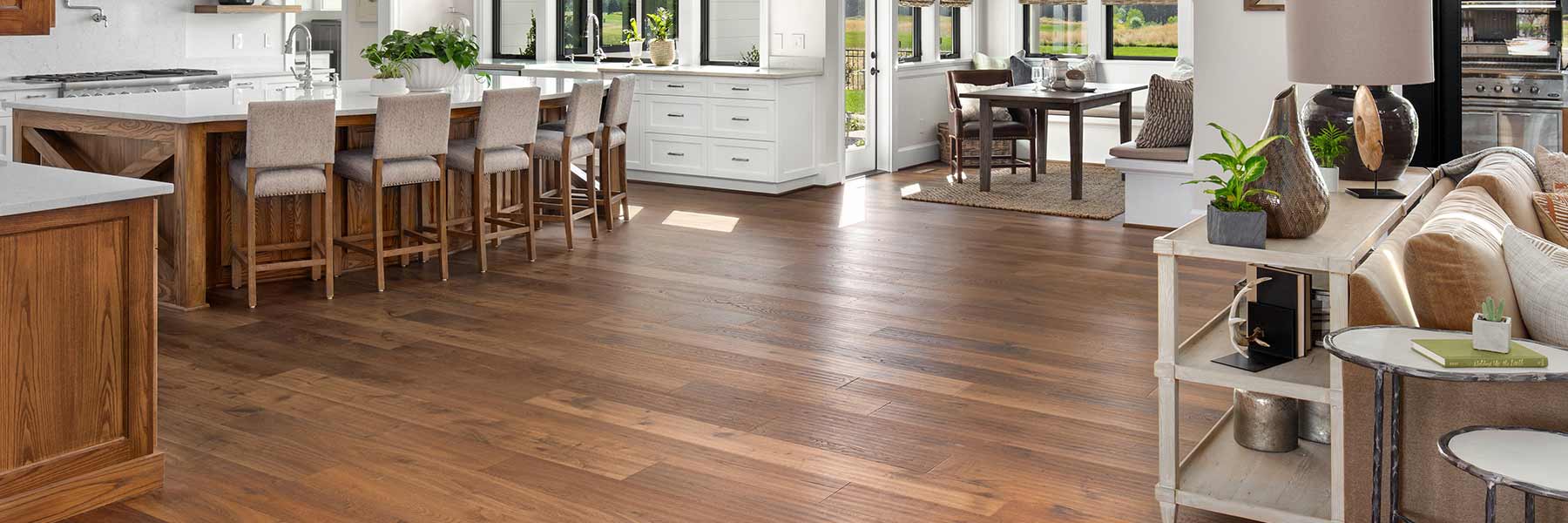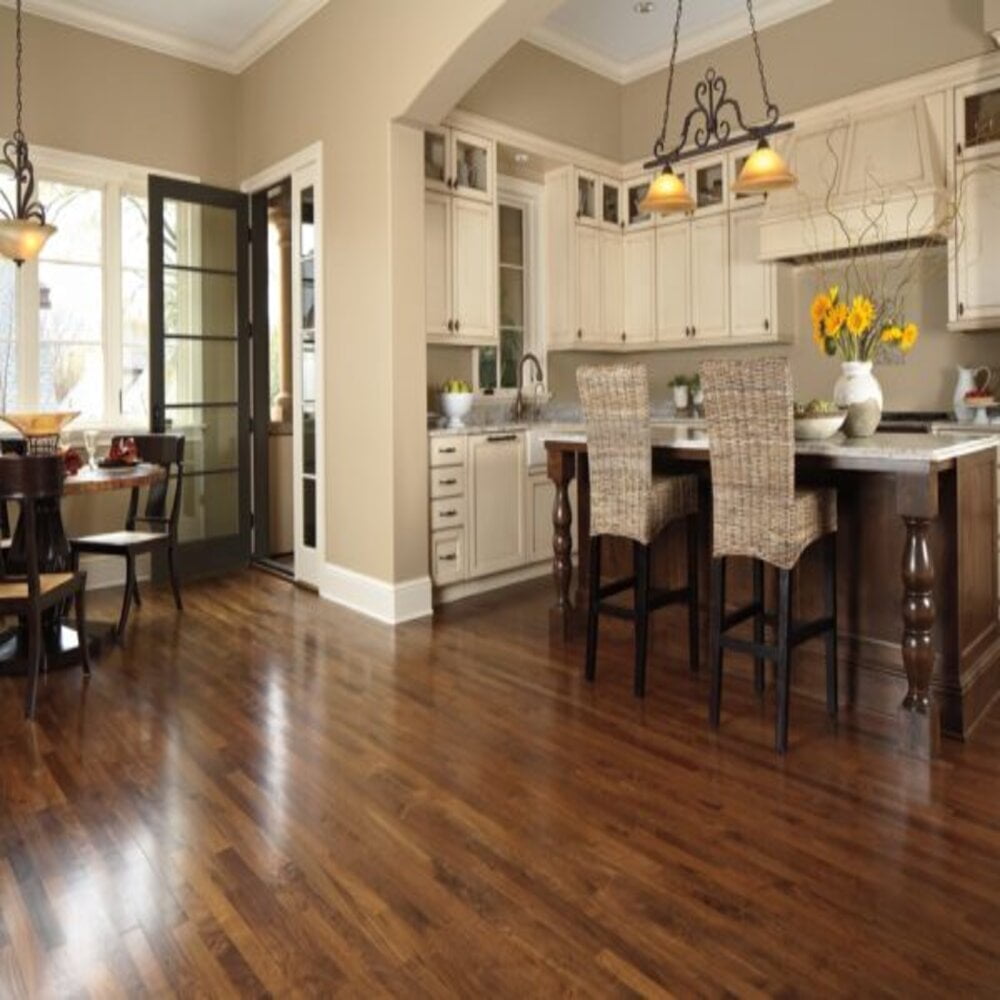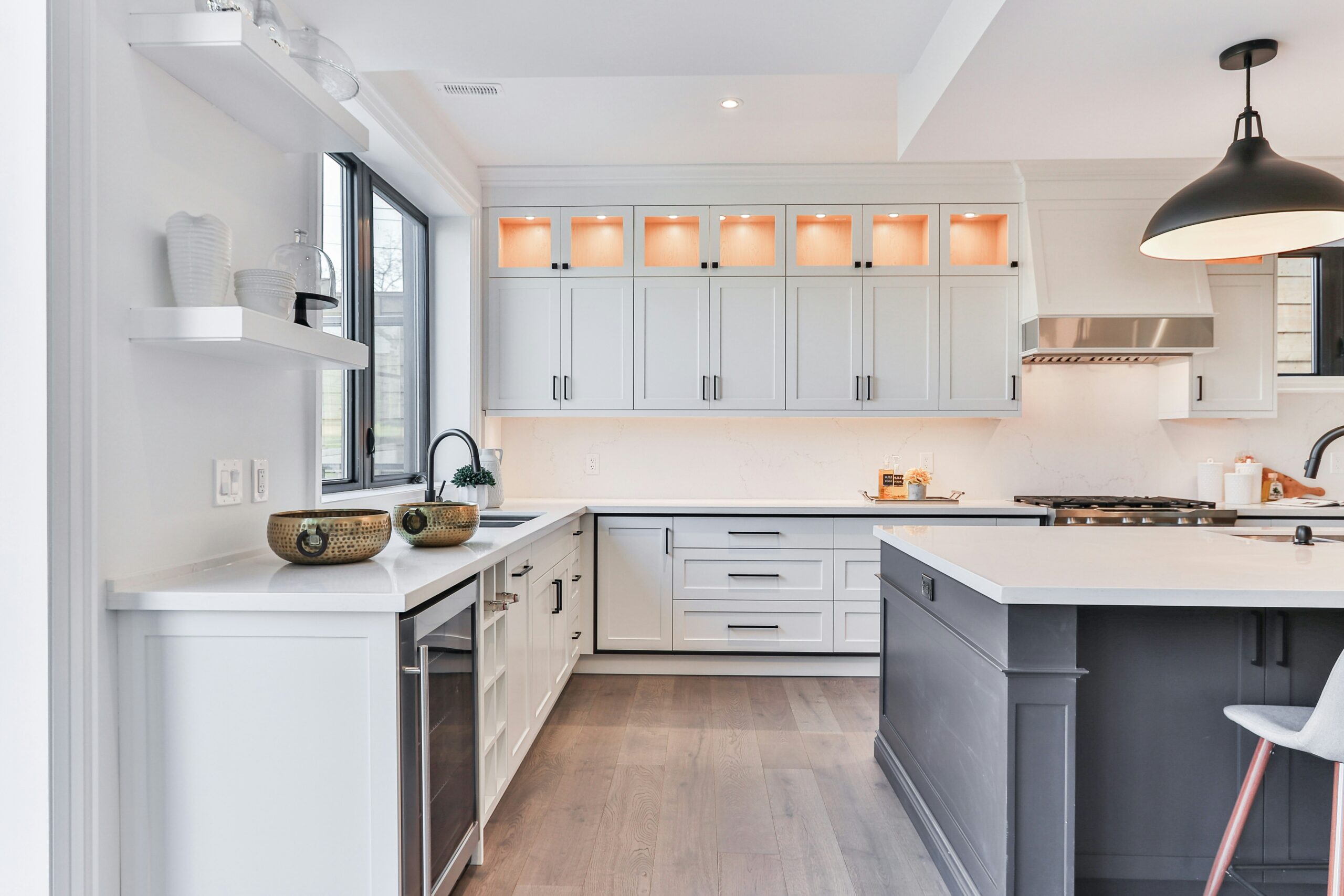
When it comes to choosing the right flooring for your home, understanding the differences between solid hardwood and engineered hardwood is crucial. Both options offer unique benefits and can significantly enhance the aesthetic of your space. Today, we’ll delve into the nuances of solid hardwood and engineered wood flooring, helping you make an informed decision based on durability, style, and your specific living conditions.
Composition and Construction
Solid hardwood is exactly what it sounds like: planks crafted from a single piece of wood, typically 3/4 inch thick. This traditional choice has been valued for over 100 years for its longevity and the ability to be refinished several times. The classic tongue and groove design aids in the stability of the installation.
On the other hand, engineered hardwood consists of a thin layer of hardwood bonded over a high-quality plywood core. This structure allows engineered planks to resist moisture and heat variations better than solid wood, making it a superior choice in areas where water resistance is essential. These planks can vary in length from 12 to 84 inches, offering versatile design options such as wide plank styles, enhancing the visual space of any room.
Durability and Maintenance
The top veneer layer of engineered hardwood provides the beauty of hardwood floors while the plywood core offers additional stability. Engineered hardwood is known for its water resistance and can be a great option in Florida’s humid climate. While it can’t be refinished several times like solid hardwood, high-quality engineered floors can still be sanded and treated to refresh their appearance.
Solid hardwood, being 3/4 inch thick, can endure multiple refinishing, offering a lifespan of up to 100 years if maintained properly. It’s an excellent choice for anyone looking for longevity and the ability to restore their floor’s original luster after years of wear.
Aesthetic and Style Options
When it comes to aesthetics, both types of floorings provide a plethora of design choices. Solid hardwood offers a timeless charm with each plank having its unique grain, providing a distinctive and luxurious feel to any room. Engineered hardwood also offers a variety of styles, especially with pre-finished options that make installing hardwood faster and without the fumes traditionally associated with on-site finishing.
The wide plank option is available in both types, enhancing the feeling of space in your rooms by making them appear larger and more open.
Installation and Cost Considerations
Installing hardwood flooring can be a significant investment, but the return in terms of aesthetics and property value is substantial. Solid hardwood typically requires professional installation due to its tongue and groove system and the need for nails and adhesives. In contrast, engineered wood can be easier and less expensive to install, with many products offering click-lock systems that reduce labor costs.
In terms of cost per square foot, engineered hardwood tends to be less expensive than solid hardwood. However, considering the potential longevity and the classic appeal of solid hardwood, it may be worth the initial investment for many homeowners.
At Nexfloors in Jupiter, FL, we understand that choosing between solid hardwood and engineered wood flooring is an important decision. Each has its advantages in terms of style, durability, and cost. Whether you prefer the timeless elegance of solid hardwood or the modern resilience and versatility of engineered hardwood, we are here to help you choose the best option for your home.
Feel free to visit our showroom to see and feel these beautiful types of floorings in person, or call us today to discuss your flooring needs. Let Nexfloors help you bring your vision to life with high-quality flooring solutions that last for generations.






